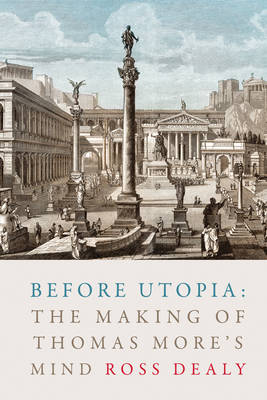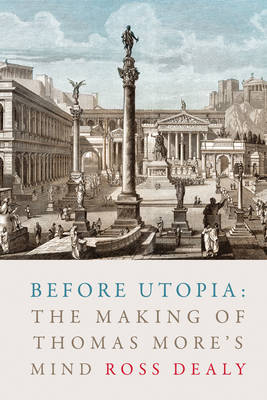
- Retrait gratuit dans votre magasin Club
- 7.000.000 titres dans notre catalogue
- Payer en toute sécurité
- Toujours un magasin près de chez vous
- Retrait gratuit dans votre magasin Club
- 7.000.0000 titres dans notre catalogue
- Payer en toute sécurité
- Toujours un magasin près de chez vous
Description
Before Utopia demonstrates that Thomas More's Utopia (1516) is not, as is widely accepted, a rhetorical play of spirit but is instead built from a particular philosophy. That philosophy is not Platonism, but classical Stoicism.
Deeply disturbed in his youth by the conviction that he needed to decide between a worldly and a monastic path, Thomas More was transformed in 1504 by Erasmus' De taedio Iesu and Enchiridion. As a consequence, he married in 1505 and wholeheartedly committed himself to worldly affairs. His Lucian (1506), written after working directly with Erasmus, adopts the Stoic mindset; Erasmus' Praise of Folly (1511) shows from beginning to end the workings of More's life-changing Stoic outlook. More's Utopia then goes on to systematically illustrate the Stoic unitary two-dimensional frame of thought within an imaginary New World setting.
Before Utopia is not just a book about Thomas More. It is a book about intellectual history and the movement of ideas from the ancient world to the Renaissance. Ross Dealy emphasizes the continuity between Erasmus and More in their religious and philosophical thought, and above all the decisive influence of Erasmus on More.
Spécifications
Parties prenantes
- Auteur(s) :
- Editeur:
Contenu
- Nombre de pages :
- 416
- Langue:
- Anglais
Caractéristiques
- EAN:
- 9781487506599
- Date de parution :
- 03-03-20
- Format:
- Livre relié
- Format numérique:
- Genaaid
- Dimensions :
- 165 mm x 213 mm
- Poids :
- 748 g

Les avis
Nous publions uniquement les avis qui respectent les conditions requises. Consultez nos conditions pour les avis.






